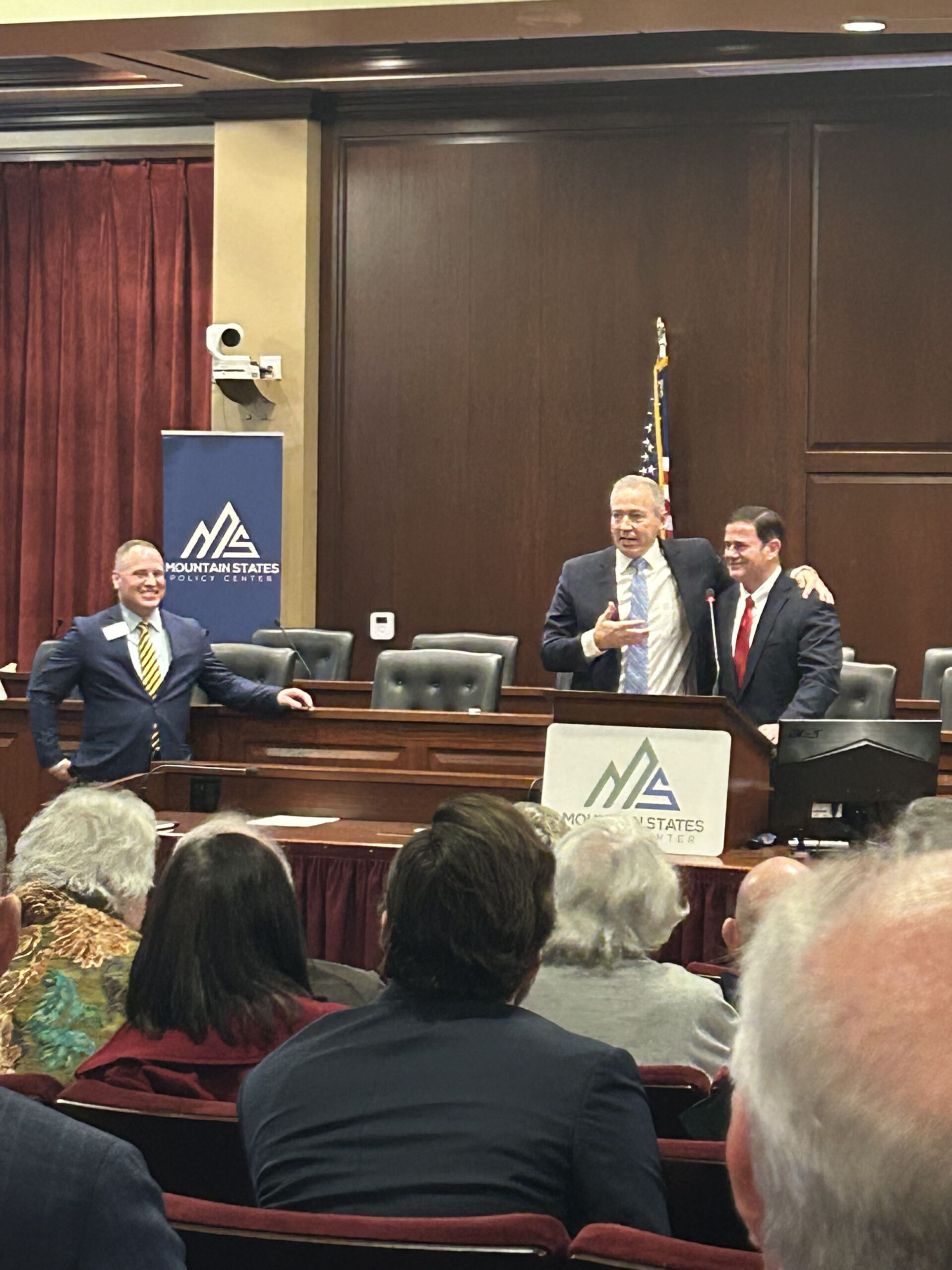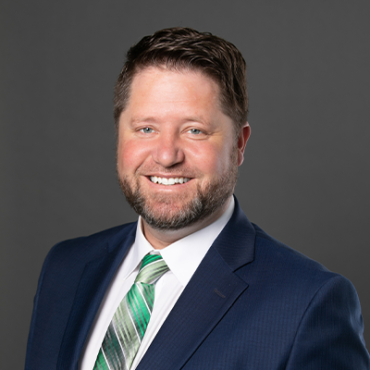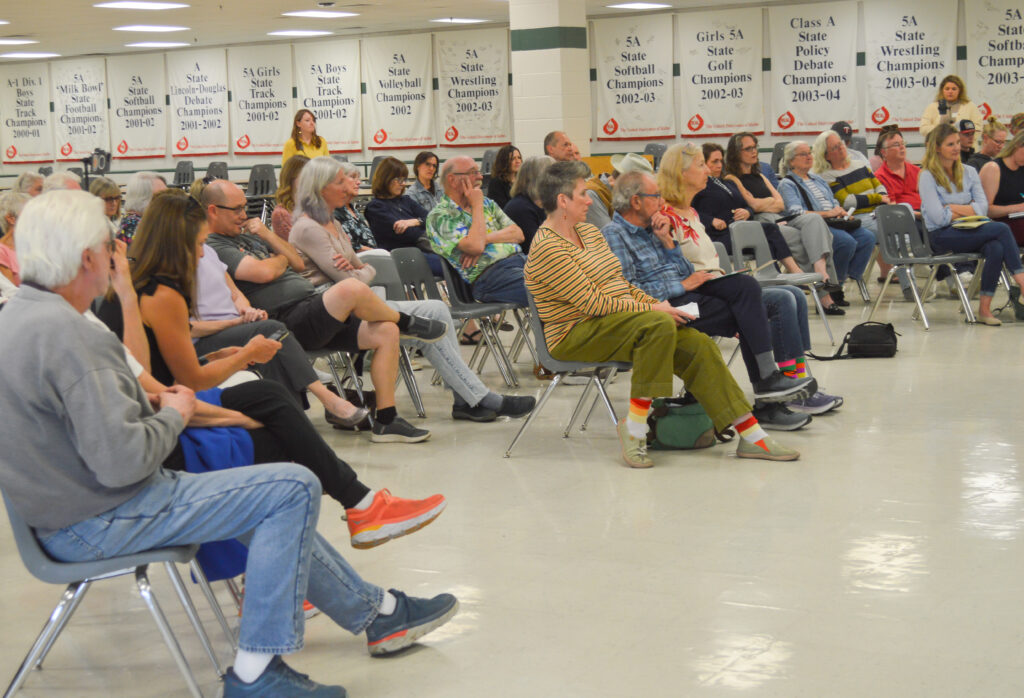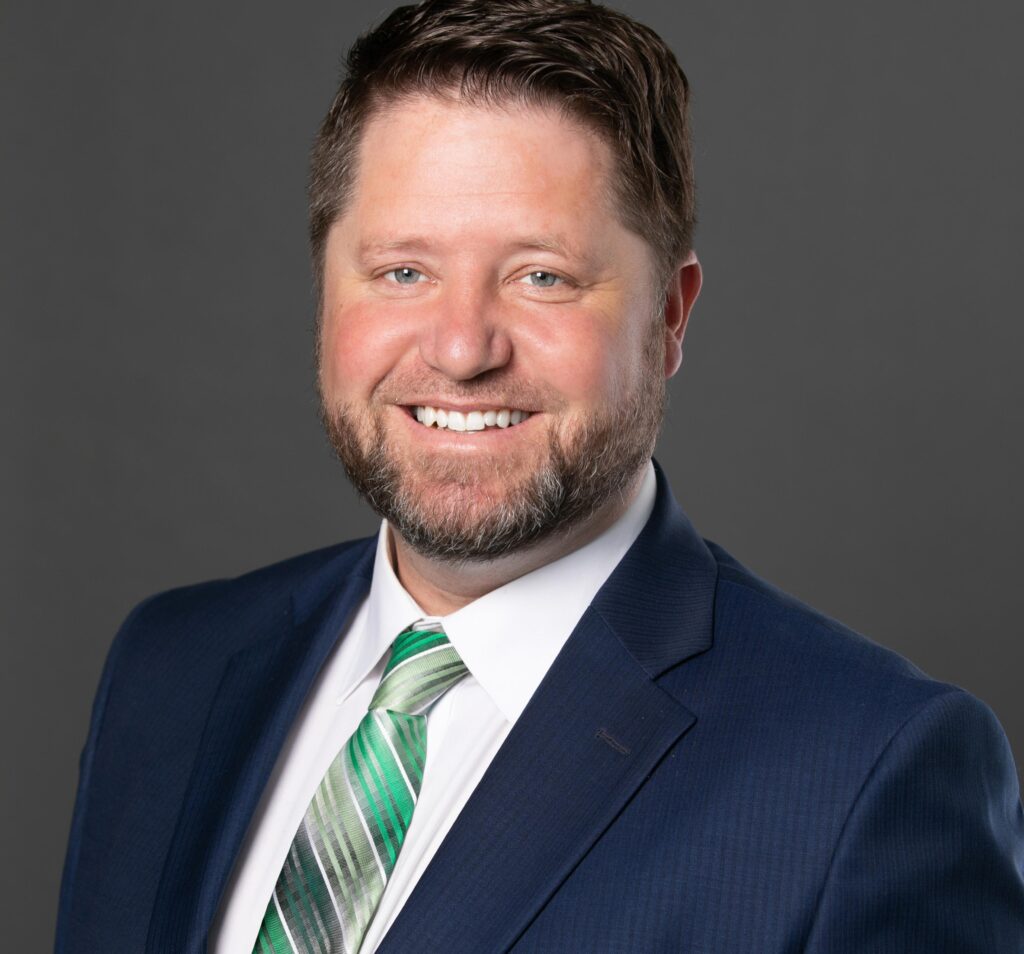Both sides of the voucher debate presented their competing visions to Idaho lawmakers and the public this week — and their takes on the issue could not be more different in tone, facts, or solutions.
The Mountain States Policy Center, a non-profit dedicated to “free enterprise, individual liberty and limited government,” hosted an “education choice forum” at the Statehouse on Monday. Besides former Arizona Gov. Doug Ducey, speakers included brief remarks from Utah State Sen. Daniel McCay and a presentation by Matt Ladner of the Heritage Foundation, a conservative think tank based in Washington, D.C.
Ducey, however, was the star of the show. He was late because his private plane was delayed by heavy fog in the area, but by the time he arrived at the Statehouse the mostly receptive audience of Idaho lawmakers was ready.
“K-12 education in the United States has been flatlining since 1982 and all we have done is put more and more money into K-12 education,” Ducey said.
Speakers Describe a Nation of ‘Failing’ Public Schools
The speakers’ remarks reflected many of the lines used by voucher proponents Rep. Wendy Horman (R-Idaho Falls) and Sen. Lori Den Hartog (R-Meridian), including framing the success of voucher legislation as a civil rights issue. The forum’s speakers were eager to paint all public schools with a broad brush — as overfunded failures.
After admitting he didn’t know how much Idaho spends per public school pupil, Ladner insisted that Idaho’s infamous low spending per pupil is overblown. “You just are not built to win a spending per pupil contest,” he said.
“What’s more important?” he asked. “That kids learn, or how much you spent on failing to get them to learn?”
Terry Ryan, head of the charter school nonprofit Bluum, asked Ducey from the audience what could be done about funding buildings for charter schools. (Idaho has allowed public charter schools for years but does not pay for charter school buildings.) Ducey suggested shutting down individual public schools or entire districts as a possible solution.
“When you do have some of these failing school districts, those districts can have their buildings converted over to charters, or even to privates under educational savings accounts,” he said.
Ducey ended his term as governor in 2022, just as his administration’s massive income tax cut for the wealthy went into effect. That reduction in revenue, combined with the runaway costs of the voucher program, were two of the main factors in Arizona’s most recent budget crisis. However, Ducey passed the buck when asked about the $1.4 billion deficit Arizona racked up last year, saying he left Democratic Gov. Katie Hobbs a $5 billion surplus.
“When you do have some of these failing school districts, those districts can have their buildings converted over to charters, or even to privates under educational savings accounts.” — former Arizona Gov. Doug Ducey
“(The surplus) is gone, and it’s not because of ESAs or tax cuts, it’s because of reckless spending,” Ducey said, ignoring his role in creating the crisis. “Sometimes you just got to tighten the belt, and you can’t give everybody everything they ask for.”
Some of the programs Arizonans asked for but won’t receive due to vouchers include $333 million for water infrastructure projects, transportation maintenance and expansion, air conditioning for state prisons, and community college budgets, which were cut by $54 million.
Competing Voices Raise the Alarm Over Vouchers
On Wednesday, Idaho Business for Education hosted a Statehouse event featuring Josh Cowen, a professor of education policy at Michigan State University and author of “The Privateers: How Billionaires Created a Culture War and Sold School Vouchers.” He was joined by Damaris Allen, the executive director of Families for Strong Public Schools in Florida. They recounted a litany of issues states with voucher programs are facing, starting with Allen’s home state.
Florida originally placed guardrails on its voucher program but continued expanding until universal access was approved in 2023. Voucher advocates tend to expand programs once they are in place; in 2023, eight other states expanded theirs along with Florida.
Allen said Florida’s voucher program has stripped public schools of critical resources. When Florida expanded its program in 2023, every public “school that didn’t have a class size that was maximized, teachers were cut, or the class was cut,” she said.
“We have school districts in Florida where none of the schools have a single music or orchestra program, except for the magnet programs,” she said.
Worse, voucher programs are not proven to improve student outcomes. “It’s been 12 years since a study showed that vouchers induced high school graduation improvements or college attendance,” Cowen said.
In addition, he said, “It’s been 23 years since a study showed vouchers improved student achievement as measured by test scores.” Theoretically, private schools could kick out students who aren’t achieving academically and improve their test scores, Cowen said. But that’s not showing up in the numbers.
It’s not just the students who will suffer under a voucher program, Allen said. So will property owners. Successful schools make homes more valuable, Allen said, because they are so desirable.
“So my biggest investment — one of my biggest financial investments — is sometimes at the whim of my legislators,” she said. “Because as people start to leave this school, my housing value drops, and that’s a huge, huge issue.”
Rural families also suffer when vouchers are in place, Cowen and Allen explained, because most private schools are in urban areas. The solution put forward by the anti-public school lobby, Cowen said, is “micro-schools” — essentially, home schooling for a very small group of students.
Alternately, anti-public education proponents say vouchers could be used for online schooling — the same style of schooling proponents slammed when it was used as an emergency measure during the pandemic.
“If there’s anything in the education research literature that has rivaled vouchers for the decline in academic outcomes, it’s been virtual, online learning models,” Cowen said. “That doesn’t mean that it doesn’t work for some kids, but it doesn’t work at the level of public policy and statewide policy.”
Accountability has consistently been an issue in nearly every state that features private school vouchers, Cowen and Allen pointed out. When the first wave of vouchers went into effect in different parts of the country, private schools were required to report data like spending, outcomes, educator licensure and more. That has changed drastically, Cowen said.
“In all of the legislation more recently passed since ’22, there has been almost no transparency, no data requirements, no reporting,” he said. “I take the position that this is deliberate, in part, to avoid the bad headlines I showed you a little while ago. We actually aren’t going to know how many of these kids are doing moving into the future because of that.”
Even if data is recorded, Allen said, it’s not necessarily transparent. In Florida, she said, “We do have data reporting, but none of us can get it, and that includes our legislators.”
But no matter the intention or the safeguards in place, Allen and Cowen said, voucher programs always balloon in size, cost and scope.
“There has not been a voucher bill in the history of this legislation that has not expanded over time,” Cowen said. “So it’s important to remember that all these caps and all of the excesses are one-year estimates. In general, they’re always going to go up after that.”




